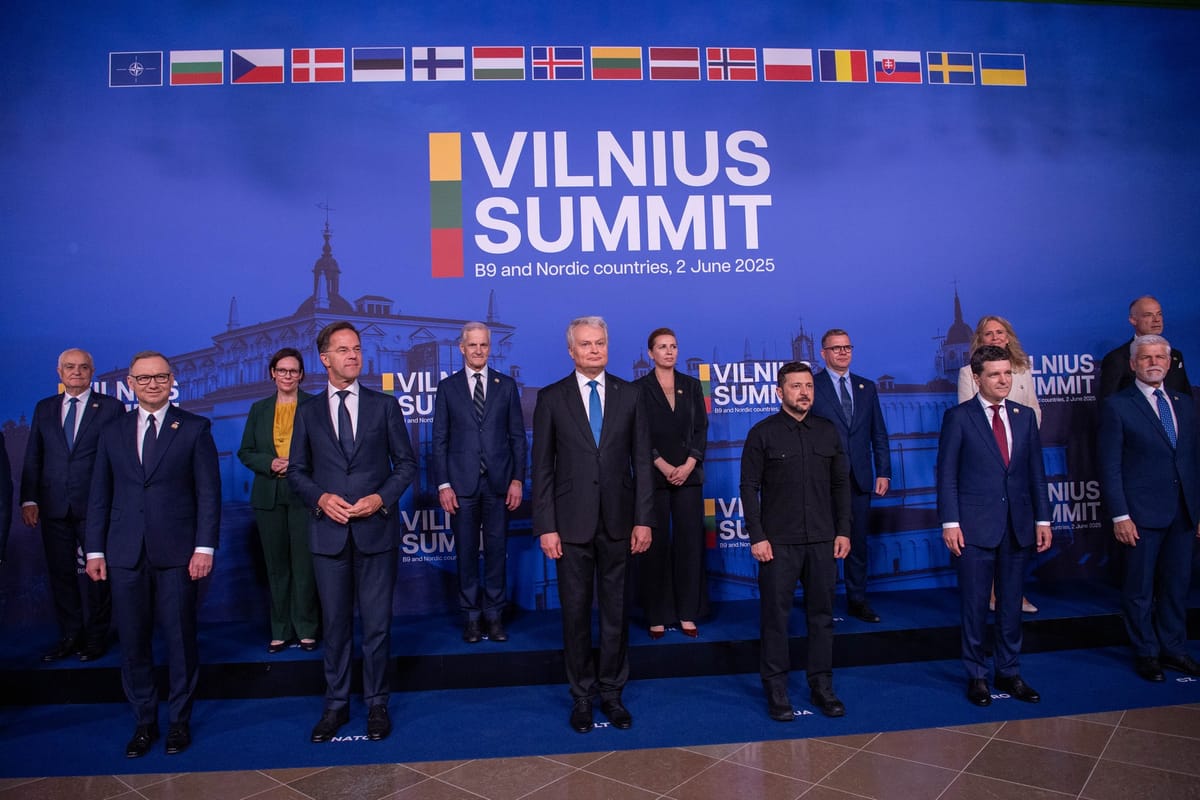
CEE leaders push for more weapons, NATO spending, at Vilnius summit
Central and Eastern European (CEE) leaders called for accelerated weapons deliveries to Ukraine and a sharp increase in NATO defence spending at the defence summit in Vilnius, Lithuania on 2 June.
The meeting brought together presidents and prime ministers from the Bucharest Nine (Bulgaria, Czechia, Estonia, Hungary, Latvia, Lithuania, Poland, Romania and Slovakia), alongside leaders from Nordic countries, Ukraine, and EU High Representative for Foreign Affairs and Security Policy Kaja Kallas.
The summit reflected growing urgency in CEE ahead of the NATO meeting in The Hague scheduled from June 24-26. NATO Secretary General Mark Rutte said the meeting in The Hague would demonstrate the alliance’s commitment to collective defence through higher investment, expanded industrial capacity and agreement on new capability targets.
“We continue to count on the Bucharest Nine and our Nordic Allies to play a key role in these important efforts,” Rutte said.
Baltic states push 5% defence spending
The Vilnius meeting exposed CEE coordination and divergence alike. While the three Baltic states, Poland and Romania called for stronger deterrence and larger defence budgets, Hungary and Slovakia expressed caution on new outlays. While Baltic leaders highlighted direct risks to their borders, Romania and Bulgaria underlined their logistical role in support of Ukraine.
For his part, Lithuanian President Gitanas Nauseda urged NATO allies to increase defence spending to 5% of GDP, warning that “our security requires a step change in commitment from all NATO members”. His proposal received support from Estonian and Latvian leaders who expressed growing concern over the long-term threat posed by Russia.
Poland calls for arms unity, deterrence
Polish President Andrzej Duda criticised delays in weapons deliveries and warned against repeating what he described as strategic mistakes of the past. “As neighbours, we know what Russian aggression means and we will not let Ukraine stand alone,” Duda said.
Latvian President Edgars Rinkevics warned against support fatigue. Czech Prime Minister Petr Fiala pledged continued military assistance and training for Ukraine, calling Czechia “a frontline EU and NATO member.”
Hungary, Slovakia cool on spending surge
Hungary and Slovakia remain the EU countries most with aligned to the Kremlin. In Vilnius, Hungarian Prime Minister Viktor Orban repeated his government’s opposition to sending lethal aid and called for “dialogue, not escalation".
Slovak President Peter Pellegrini said Slovakia supports raising defence spending to 3.5% of GDP along with a further 1.5% for dual-use investments in infrastructure such as rail and hospitals. The proposal, reported by The Slovak Spectator, drew a muted response at home, according to the weekly.
Kallas urges EU-NATO unity, Zelenskyy presses for accession
Romanian President Nicusor Dan, attending his first foreign summit as head of state, reaffirmed Romania’s commitment to Ukraine. “Romania will continue to support Ukraine because this concerns our own security. It is one thing to have Ukraine on our eastern border and another to have Russia or a Russia-controlled state,” Dan said.
Kallas called for closer coordination between the EU and NATO. Ukrainian President Volodymyr Zelenskyy closed the summit by urging NATO to issue a formal invitation for Ukraine’s accession at the upcoming meeting. “Security guarantees are no substitute for NATO membership,” Zelenskyy said.
